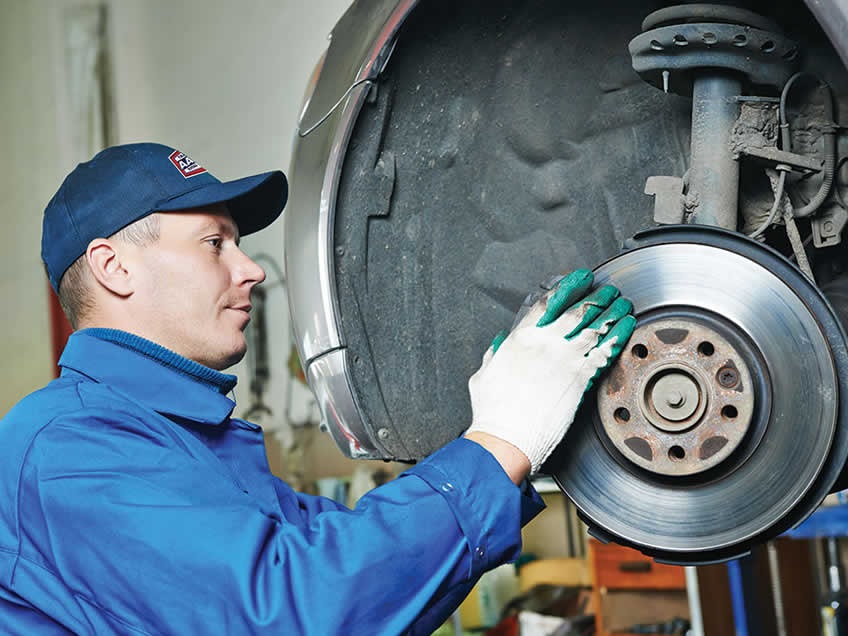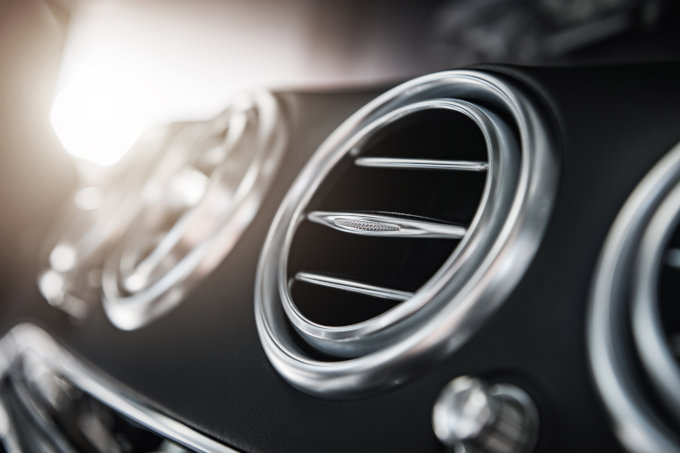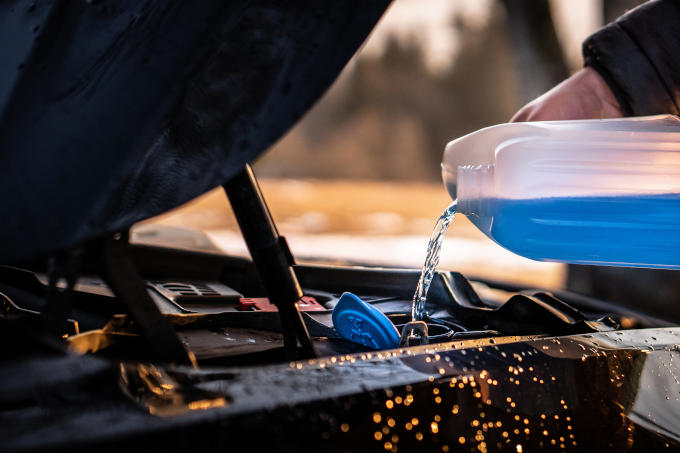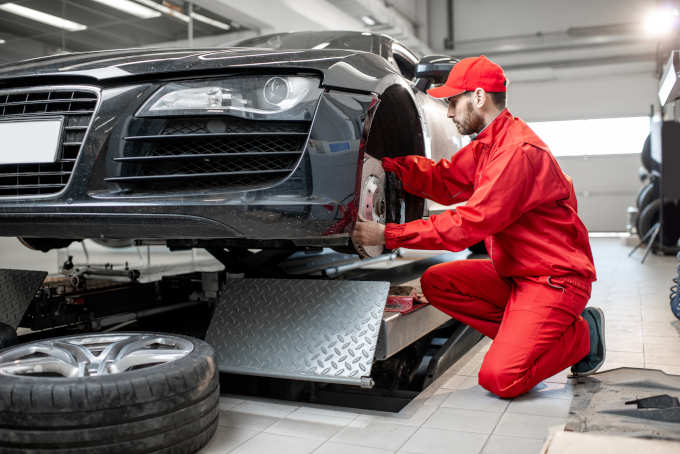Originally published on 06/28/2015
Updated on 07/27/2022
We use our brakes so often that it may seem concerning when we hear a squeaking sound. Strange and previously unheard noises are generally bad news for our vehicle, but the good news is that squeaky brakes are not usually a cause for panic, though they should also not be ignored.
Reasons Your Brakes Might Squeak
There are several possible reasons that you may hear squeaking coming from your brakes when you press on them:
- Your brake pads are becoming worn
- Your car has been sitting a long time unused
- The brake caliper isn’t adequately lubricated
- Your brake rotors are damaged
- You have heavy duty brakes with more metallic materials
Worn Brake Pads
The primary reason for squeaking (or sometimes a scraping) sounds is that your brake pads are wearing down close to the point where they need to be changed. Brake manufacturers include metal strips mounted on the brake pad that will squeak when friction is low, and the strip makes contact with the rotor. This won’t damage the brake rotors unless you allow it to go on for an extended period. Brake pads are designed to emit this noise to warn drivers that the time has come to get the brake pads inspected and perhaps replaced if necessary. Think of brake squeaking like the warning message you get on a printer when it’s running out of ink. You can continue to print for now but have to get ready to change the cartridges soon. The same applies to your brake pads. You can keep going for now, but make your appointment for a brake check as quickly as possible.
Outside Exposure Overnight
Another common reason for brake squeaking is when your car sits overnight for several hours and accumulates dust or dew moisture in the brakes. This exposure causes a slight amount of surface rust on the rotors. This temporary condition can make them squeaky or squeal when you first use them, but the sound should go away after a short time once the vehicle and brakes are used a few times. If the sound disappears after several minutes of driving, you probably have nothing to worry about. You can solve this problem by simply bringing your car into a garage for overnight parking.
Brake Caliper Hardware Not Lubricated
Brake systems that are poor quality or installed incorrectly by low-rate mechanics sometimes exhibit squeaking noises when braking. The most common mistake or defect is the improper lubrication of the brake caliper hardware and slides, which causes the brake calipers not to move and apply the pads to the rotors properly when in use.
Damaged Brake Rotors
If the brake pads have become overly worn or were prematurely damaged, your brake rotors may already have become damaged by the metal exposed on the worn brake pads, creating metal-to-metal contact against the rotors’ carefully balanced surfaces. In this case, you may hear squeaking coupled with vibrations, and the squeaks will quickly turn to scrapes and grinding noises as the problem worsens. This can lead to brake failure and must be attended to by a qualified technician specialist.
Modern Brake Materials
Some modern brakes are made with more aggressive metal materials, leading to additional noise, including squealing and squeaking. If you know your brakes are relatively new and there are no other symptoms, you should consult with the service provider about why it might be happening and what can be done to solve the annoyance. Alternative products, such as ceramic brake pads, are much quieter and do not produce black, messy dust.
What Should You Do About Squeaky Brakes?
The first thing to remember is that squeaky brakes do not always mean your brakes need to be replaced or repaired, but it is an indication they need to be checked.
While brake squeaking is unlikely a sign of brake failure, other symptoms are, as in the case of damaged rotors mentioned above. If you experience whining, grinding, knocking, steering wheel vibrations, brake pedal pulsations, or any kind of shaking or sponginess in response to your application of the brakes, these could all be signs of brake failure. Get your vehicle immediately inspected.
Visit an Auto Technician
If the squeaking doesn’t die down after a short time driving, the best thing to do is to take the vehicle to a qualified technician and have them look at the brake pads to make sure everything is correct with the brake system. Replacing the brake pads is a relatively straightforward repair, and doing it promptly is important. If you leave worn, thinning brake pads on your vehicle too long, they may wear down so far that the metal backing of the brake pads contact the brake rotors and damage the rotors beyond repair. That level of damage is much more serious and expensive to manage.
Inspect the Brake Pads Yourself
If you look through the gaps in your alloy wheels (you might need a flashlight), you should be able to see the condition of your brake pads for yourself. You’re looking for any sign that the friction parts are wearing thin and close to the metal backing. Take a look at how thick the remaining brake pads are. If they are worn down to less than a quarter of an inch, you should consider having them inspected and replaced.
AAMCO Is Here to Help
At AAMCO Overland Park, we offer complete brake services. If your brakes are making strange noises such as squeaking or squealing, or you are experiencing any signs of brake failure, schedule an appointment today!










